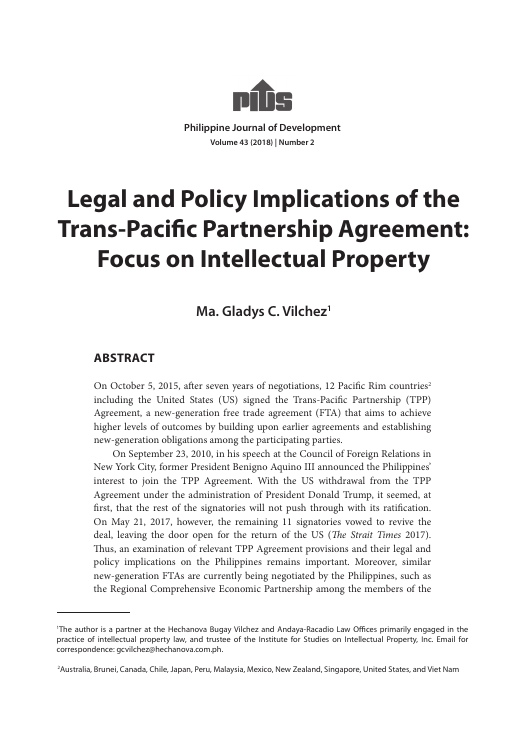Abstract
As the Philippines participates in negotiations for new-generation free trade agreements (FTAs), it is crucial for the country to have a critical assessment of its readiness to meet the obligations set out therein. Among others, the legal and policy implications of particular new-generation FTA provisions must be carefully examined. This paper provides a study of the legal and policy implications of the intellectual property (IP) provisions of these new-generation FTAs through an analysis of the relevant IP provisions of the Trans-Pacific Partnership (TPP) Agreement. It also reviews the IP treaties and conventions ratified by the Philippines, the current IP laws and related laws enacted to implement these treaties, as well as the legal framework within which IP rights are protected and enforced, to assess their convergence with TPP obligations, draw out the gaps, and identify policy and regulatory changes and administrative actions that may be required for the Philippines to achieve readiness to join the TPP or similar FTAs.
Full Issue
SHARE
